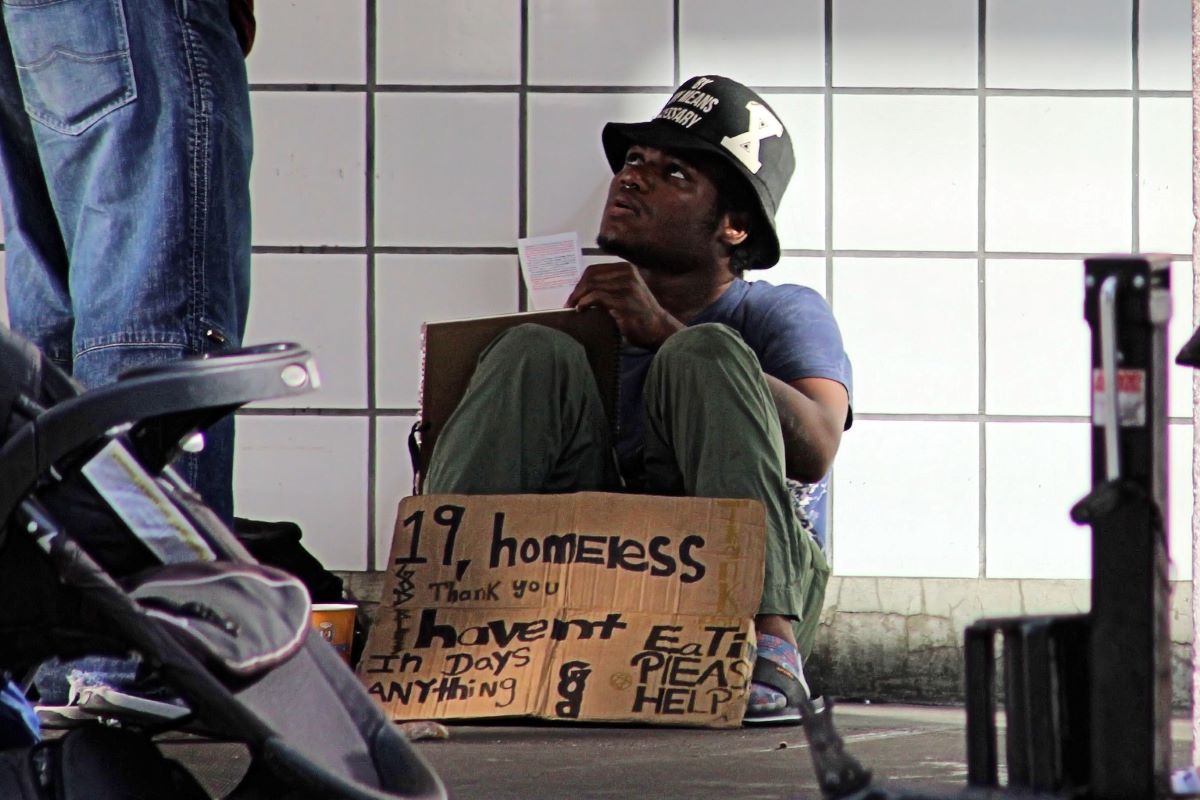When you give people money, they can afford things.
Quelle surprise.
That was the idea behind the wildly successful Child Tax Credit, which lifted 2.9 million kids out of poverty. It’s the idea behind a program in Washington state that provides flexible funding to youths aging out of foster care. And it’s the idea behind the Trust Youth Initiative, a New York City-based effort that puts money directly into the hands of homeless youth.
The pilot program is a collaboration between Chapin Hall and Point Source Youth to provide direct cash transfers to youth experiencing homelessness.
In the first phase of the initiative, 30 to 40 young adults ages 18 to 24 receive $1,250 per month for up to two years. Youth who have experienced homelessness helped design the program, which is funded through a partnership between government entities and private donors.
“Young people are experts in their own lives — period,” said Larry Cohen, co-founder and executive director of Point Source Youth. “A solution that works to end youth homelessness provides young people experiencing homelessness, especially historically marginalized queer, trans, Black, indigenous, youth of color, directly and unconditionally, the totality of resources they need. We must provide direct cash and youth-directed support so youth can exit youth homelessness and can flourish in life.”
Launched in 2021, the Trust Youth Initiative is based on a 2020 study by Chapin Hall demonstrating the effectiveness of direct cash transfer programs.
“Direct cash transfer programs improve outcomes for people in poverty and other marginalized situations, but they have never been specifically developed or evaluated for young people experiencing homelessness,” a report based on the study notes. “This approach has the potential to add a game-changing tool to national, state, and community toolkits for ending youth homelessness.”
Direct Cash Transfers Are Proven to Lift People out of Poverty
In a press release announcing the initiative, those behind the program emphasized the benefits of direct cash transfer programs.
“Numerous evaluations show that they reduce poverty, boost well-being, and increase education and employment,” the release states. “Contrary to common beliefs, studies show that cash transfers to people experiencing adversity do not result in money poorly spent, increased substance use, or reduced motivation to work. In fact, evaluations have found that recipients mostly spend cash assistance on basic needs, that the financial support has helped people engage in education and productive employment, and that these programs tend to reduce risky behaviors and negative health outcomes.”
Working with youth agencies in NYC, UpTogether will distribute payments to youth experiencing homelessness at a frequency determined by the client—weekly, biweekly, or monthly—through the method of their choice (e.g., Venmo, PayPal, direct deposit, debit card).
Clients can also request a larger payment upfront to secure and maintain housing. The program can also provide services like coaching, peer support, connections to care, financial coaching, and housing navigation.
Point Source Youth, Chapin Hill, and UpTogether will use the initiative to create a “scalable policy solution” to address the nationwide youth homelessness crisis.
The three agencies will conduct rigorous evaluations throughout the process to determine best practices, to compare outcomes and experiences of young people in the project to those receiving smaller stipends, and to ensure that the program best meets the needs of Black, Indigenous, Latine, and LGBTQ youth experiencing homelessness.
They also hope to, according to the press release, “produce cost savings through reductions in shelter use, preventing legal and health systems involvement associated with homelessness, and eventually increasing young people’s long-term earnings potential through education and career pathways.”
While other municipalities like Washington State have introduced flexible spending options for homeless youth, this is the country’s first direct cash transfer program.
Matthew Morton, Research Fellow and study principal investigator at Chapin Hall at the University of Chicago, believes it will revolutionize how the country addresses youth homelessness.
“The Trust Youth Initiative represents a major opportunity to build evidence and improve systemic solutions for preventing and ending youth homelessness. Direct cash transfers are supported by a solid international evidence base, and they recognize people’s agency,” Morton said.
“It’s time to evaluate this kind of support with young people who, for no fault of their own, don’t have the same access to resources for meeting basic needs that many of their peers have during transitions to adulthood,” Morton continued. “Providing direct financial assistance with supports to young people has the potential to empower them to make investments in their own success while helping to counter racial inequities stemming from legacies of injustice.”













